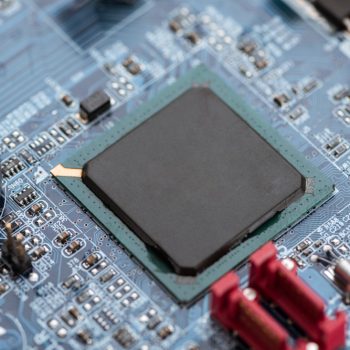What comes to your mind when you think of starting a company? How to raise capital, how to test the market, how to hire employees? Surely you don’t think of engineering simulation first, do you? But stay with us here and we’ll show you why engineering simulation is a great idea for startups. Instead of pouring years of hard work and money into an untested technology, simulation helps you determine the feasibility of your project and save you money and time with your prototype designs.

According to the Encyclopedia of Computer Science (4th Edition, July 2000), simulation is defined as “the process of designing a model of a real or imagined system and conducting experiments with that model”.
There are various types of simulations that can be conducted depending on the industry and goals. For instance, computer simulations or virtual simulations are performed to replicate a real-life situation on a computer and see how the system works. Simulations can also be carried out in fields such as engineering, technology, manufacturing, and processing.
Engineering simulation uses mathematical modeling and virtual simulation, while manufacturing and production simulation is carried out with the help of specially designed software. Companies such as ANSYS provide the tools and software necessary for companies to simulate their products & test them in real-world situations and environments. Ready to explore the ANSYS Startup Program? Click here.
Simulation is a fast, practical, and cost effective way to see how any product would behave in the real world. What does all this have to do with startups? A lot, actually.
Startups are mired with uncertainty and their viability is always doubtful. Sure, if your idea is as straightforward as selling shoes online all you’d need to do is setup a website or put up a landing page to see if it works. But what if your idea is a bit more complex than that? What if it involves sophisticated hardware and software that would be difficult and expensive to obtain? In such cases, simulation is the best recourse available.

Let’s say your startup involves a product that would require the fabrication of complex, high-level technology. How would you know if the technology is feasible in the real world? How would you make sure your product will actually work as intended? Simulation helps you answer these questions, and also reduces the time and energy invested in building and testing the product.
Simulation is not restricted to the business world. Consider dangerous fields such as nuclear energy. It would prove dangerous and impractical to test an idea in such a field, simply for the sake of experimentation. Thus, simulation would help to find out if the idea is viable in a safe and easy way.
In the past, inventors such as Tesla and Dyson would take years to build physical prototypes and test them. But in today’s world, a company cannot afford to take years to test their idea. Today, product life cycles are shorter and customers are demanding that new features be developed quickly. If not, there is always another company that can imitate you, and put all your years of hard work to waste. However, the good news is there are several tools and technologies available that can help startups test their idea and figure out if it viable enough for their audience.
There are types of engineering simulation software that spans industries and applications can take advantage of, and most provide simulation options like digital prototyping, digital exploration, and testing in a risk-free virtual environment. Regardless of the hardware product you are designing, there is likely simulation software that can help you design and test it before investing in a physical prototype.
Here’s an excellent example of how simulation has helped a startup:
Engineering simulation helps startups get ahead of the curve by allowing them to test their ideas and improvements while staying ahead of their competitors. They can ship products faster and offer better features to their customers. Best of all, they can do this with a minimum investment of money and time, both of which are crucial for startups.
Ready to get testing? Explore the ANSYS Startup Program.

